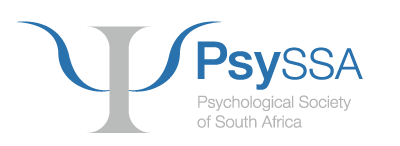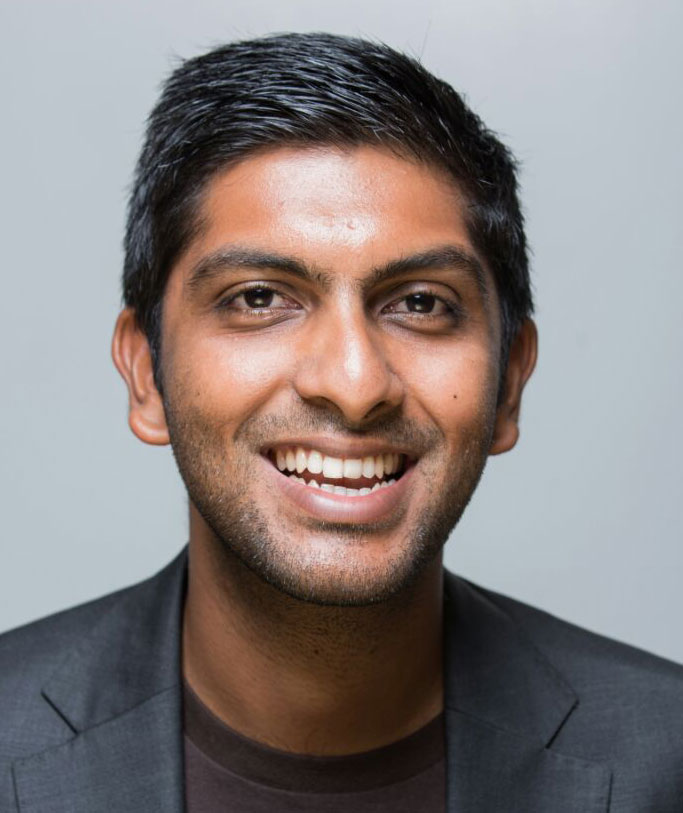
Sexuality and Gender Division (SGD)
The aims of the Division of Sexuality and Gender of PsySSA:
The Sexuality and Gender of PsySSA aims to promote a psychological understanding of the fields of sexuality and gender diversity, including queer identities and positions. The SGD addresses this mission through the advancement of scientific research, clinical practice, continuing professional development and being responsive to related national, continental and international issues and concerns. The objectives derived from this mission are to be achieved in cooperation with PsySSA, other professional organisations, relevant civil society organisations and the general public.
History of the development of the SGD
The above objectives should be seen against the origins and development of the SGD. The division developed from a collaborative project between PsySSA and APA (the American Psychological Association). PsySSA is a member of the International Network for Lesbian, Gay, and Bisexual Concerns and Transgender Issues in Psychology (INET, now called IPsyNET), that is hosted by the APA.
IPsyNet is composed of national, multinational and international psychological associations. “The vision of IPsyNet is that psychological organisations are effective leaders in ensuring that all persons fully enjoy health and human rights, regardless of their sexual orientation, gender identity, gender expression, or sex characteristics, by incorporating the goals of celebrating and valuing the full range of human diversity, including diversity in gender, sexual orientation, and sex, into their structure, programmes, and activities (IPsyNet, 2013).”
Accordingly, PsySSA and the SGD adhere to a psychology that is affirmative of sexual and gender diversity. This includes the recognition of various sexualities and gender identities as normal variations of human sexuality and not per se as the cause of psychological difficulties or pathology. Contextual awareness is emphasised, including an understanding of how aspects such as homo- and transphobia, heterosexism, prejudice and stigma impact on mental health and well-being.
Furthermore, the SGD therefore acknowledges the intersections between sexuality, gender and other forms of difference such as race and class. It aims to promote a critical psychology of sexuality and gender that goes beyond a focus on sex/gender differences to a consideration of how such differences are produced, reproduced and normalised through exclusionary and oppressive practices and mechanisms.
What do members receive by becoming members?
- Secure database for referrals (e.g. private practice)
- Communications regarding recent research as well as CPD and related workshops in the fields of sexualities and gender
- Access to contribute to training (in CPD and related workshops)
- Responding to current issues e.g. through media statements, blog writing; access to current research and scholarship; and a sense of community and belonging.
Full Member
Associate
Affiliate
Registered Counsellor & Psychometrist
Psychology Intern
Student Member
Thembisile Dlamini
Mr Nkanyiso Madlala
Dr. Lindokuhle Ubisi
Sunitha Swanepoel
Dr. Angeline Stephens
Prof. Juan Nel
Suntosh Pillay
Pierre Brouard
Rev. Chris McLachlan
Constitution of the the Sexuality and Gender Division of PsySSA
on sexuality and gender?
• Are you committed to making psychology
diversity-affirming?
• Do you have an interest in collaborations to advance
theory and praxis on LGBTIQ+ issues?
• Are you concerned about sexual and gender rights?
• Or, are you just curious?
Sexuality and Gender Division Brochure
Practice Guidelines For Psychology Professionals Working With Sexually And Gender-Diverse People
Practice Guidelines For Psychology Professionals Working With Sexually And Gender-Diverse People
PsySSA publishes Historic Guidelines for Sexual and Gender Diversity
Sexual and Gender Diversity Position Statement
PsySSA Commemorates International Day Against Homophobia, Biphobia and Transphobia
The quiet violence of inaction — we need to do better on gender-based violence - The Mail & Guardian
Southern African HIV Clinicians Society gender-affirming healthcare guideline for South Africa
Open Statement by The Psychological Society of South Africa represented by the Sexuality and Gender Division in support of Comprehensive Sexualities Education in South Africa
Hate crimes against the LGBTIQ+ community have far reaching consequences: PsySSA - SABC News
Dutch Reformed Church leader misrepresents paedophilic disorder as same-sex sexual orientation: An open statement by PsySSA
The Psychological Society of South Africa Sexuality and Gender Divisions issues a Press Statement regarding the Court of Arbitrations' ruling in the case of Caster Semenya vs. The International Associations of Athletics Federation
The Depo-Testosterone stock out must never repeat itself
Statement regarding Medical Affirming treatment, including Puberty Blockers, for Trans Adolescents
Launch of Landmark PsySSA Guidelines on Sexual and Gender Diversity Welcomed Widely
Psychologists expand gender understanding - City Press
SA psychologists adopt landmark LGBTQ affirming practice guidelines - Mambaonline - Gay South Africa Online
Lesbian, gay, bisexual, transgender, intersex and queer rights are human rights - PsyTalk
IPsyNet Statement and Commitment
What happens to a Dream Deferred? Queer Rights in South Africa on IDAHOBIT?
PsySSA joins Qwelane hate speech case
Psychology Society enters Qwelane case - News24
BREAKING NEWS: The Constitutional Court upholds the High Court order against Jon Qwelane
Jon Qwelane – apologise and pay up! - Thought Leader
Justice 12 years delayed: Jon Qwelane hate speech case to be heard in Constitutional Court on 22 September
PsySSA is ‘friend of the court’ in Jon Qwelane hate speech case
Jon Qwelane’s utterances declared hurtful and hate speech
Postponement of Qwelane hate speech case, eight years later, is a denial of justice
JON QWELANE HATE SPEECH: JUDGEMENT DUE ON 18 AUGUST
PsySSA TO TESTIFY IN JON QWELANE HATE SPEECH CASE IN HIGH COURT NEXT WEEK - POWA
Psychological Society of South Africa v Qwelane and Others
Gender activists welcome Concourt judgment in Qwelane's hate speech case
Op-Ed: Jon Qwelane’s hate speech – why words and context matter
APA Monitor on Psychology: Overturning Biases in South Africa
Feminism & Psychology/Sexual and Gender Division, PsySSA student presentation awards, 2022
Honorary mention goes to two students:
- Siyanda Shabalala, who presented, as first author, a paper entitled, Patterns of inclusion and exclusion among transgender women in South Africa: a critical narrative inquiry. Mapping the structures, practices and norms that contribute to the marginalization of transgender women in post- apartheid South Africa, the study found that transgender women face economic disempowerment impacted on by familial rejection and gender-based discrimination in a conservatively gendered labour system. Transgender women were also revealed to contend with institutional stigmatization in healthcare as well as invisibilisation in cisnormative South African knowledge systems that disregard transgender positions.
- Sunitha Swanepoel, who presented, as first author, a paper entitled Using Photovoice to Explore the Perceptions and Experiences of Masculinity amongst Male, Afrikaner Adolescents in Gauteng, South Africa. The study found that constructed notions of hegemonic masculinity were informed by: (1) the socially constructed intersubjectivities within the Afrikaner community, (2) Afrikaner and Voortrekker heritage, (3) historical romanticisation of farm life, and a generational shared patriarchal ownership and trust between Afrikaners and the land, (4) socialisation by friends and family who challenge and ridicule boys to adhere to hegemonic notions of masculinity, and (5) Christianity which guides them to live their lives “right”.
The winner of the 2022 F&P/SGD PsySSA student presentation award goes to Kajal Carr, who presented a paper entitled The pandemic of being a woman: A discourse analysis of the South African media’s accounts of GBV at the time of COVID-19. The study demonstrated reductionist, uncontextualized and highly gendered representations of GBV that uphold colonial ideals of masculinity and femininity, while doing little to resist those power dynamics that uphold GBV.
Warm congratulations to all the awardees! This is a significant achievement.
Practice Guidelines For Psychology Professionals Working With Sexually And Gender-Diverse People (2nd Ed.)
Coinciding with the official launch in Cape Town, 18 March 2025, herewith, the second edition of the Psychological Society of South Africa [PsySSA]. Since science and practice evolve, these guidelines are an updated consolidation of best practice evidence in South...
Launch Invitation of 2nd Edition Practice Guidelines for Psychology Professionals Working with Sexually and Gender-Diverse People
Join us for the official launch event of the 2nd Edition Practice Guidelines for Psychology Professionals Working with Sexually and Gender-Diverse People!
Queer Mental Health in South Africa in Mental Health Awareness Month
This Mental Health Awareness Month, PsySSA’s Sexuality and Gender Division (SGD) shines a spotlight on queer mental health in South Africa.
PsySSA Practice Guidelines for Working with Sexually and Gender Diverse People Revision
The PsySSA African LGBTI+ Human Rights Project, spearheaded by the Sexuality and Gender Division (SGD) are updating "PsySSA's Practice Guidelines for Working with Sexually and Gender Diverse People" and want to hear from YOU! Help us make the revised guidelines as comprehensive and impactful as possible. Just a few minutes of your time can contribute to a more inclusive and informed practice.
PsySSA Commemorates 16 Days of Activism against Gender-Based Violence 2023
The 16 Days of Activism for No Violence against Women and Children Campaign: What this Means for People with Disabilities
PsySSA Commemorates 16 Days of Activism against Gender-Based Violence 2023
16 Days of Activism for No Violence against Women and Children Campaign: Rethinking Power and Basic Human Rights By Angeline Stephens, PhD
PsySSA Commemorates 16 Days of Activism against Gender-Based Violence 2023
Reflection on the Criminal Law (Sexual Offences and Related Matters) Amendment Act 13 of 2021 for 16 Days
Divisional Webinar: The Domestic Violence Amendment Act 2021: Is it enough and what are its implications for psychological practise? – Recording Out Now!
Did you miss our divisional webinar: The Domestic Violence Amendment Act 2021: Is it enough and what are its implications for psychological practise?
Don't worry! Watch the recording below!
Divisional Webinar: The Domestic Violence Amendment Act 2021: Is it enough and what are its implications for psychological practise?
Join the Sexuality and Gender Division and PsySSA, in this free webinar, as we explore the Domestic Violence Amendment Act 2021
23 August 2023
2 General CEUs
Comments on the National Council of Gender-based Violence and Femicide Bill
The SGD, on behalf of PsySSA, has shared their comments on the Comments on the National Council of Gender-based Violence and Femicide Bill
- Home
- About us
- PsySSA Structures
- Divisions
- Sexuality and Gender Division (SGD)

















